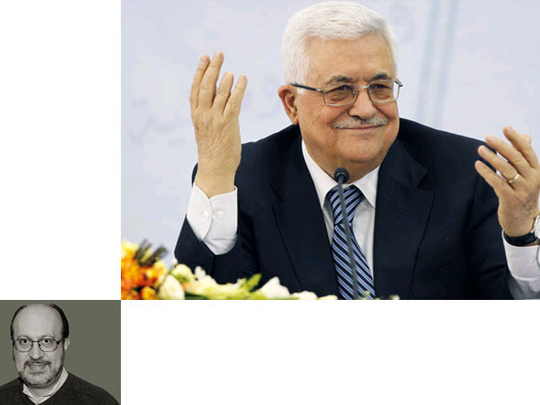
In the aftermath of the 1990 Iraqi occupation of Kuwait, when Yemen held a UN Security Council seat, its ambassador vigorously attacked the US and its allies. In time, Sana’a either abstained or voted against various resolutions that allowed Washington to launch Operation Desert Storm, which led then-secretary of state James Baker to opine that the jovial man “just enjoyed about $200-250 million worth of applause for that speech”. Yemen’s ‘no’ vote at the Security Council was expensive.
With an almost guaranteed American veto to reject Palestine’s membership as the UN’s 194th member-state, what is Washington about to lose, and how expensive is this forthcoming veto?
By all accounts, and though long overdue, the Palestinian National Authority’s (PNA) goal to build the key institutions of an independent Palestinian state in the West Bank and the Gaza Strip, cannot be advanced with such a declaration. Still, for almost 60 years, Palestinians endured occupation while harnessing international support as a vast majority of nation-states acknowledged their legitimate rights.
More recently, timid European powers pretended to become relevant by providing assistance to the PNA, hoping to persuade their American and Israeli allies to recognise what was inevitable. Even the International Monetary Fund and the World Bank, paragons of economic knowledge par excellence, managed to declare the PNA ready to assume statehood responsibilities.
Notwithstanding global backing, Israel adopted a hysterical stance against Palestinian independence, advancing the canard that its security was threatened. Strangely, it is fair to ask why successive Israeli governments failed to earn genuine security, when undeniable nuclear capabilities protect the country from any putative annihilation?
No credibility
Why should anyone believe Israeli Foreign Minister Avigdor Lieberman when he shamelessly announces that Palestinian President Mahmoud Abbas would resort to “violence and bloodletting” the day after the Security Council votes favourably for independence? Even worse, when will American officials, who know that Lieberman is less than a stable man, reject such nonsense?
Lieberman and his Prime Minister are amply aware that Abbas is an ideal negotiating partner as the latter wishes to awaken the stalemated Israel-Palestinian relationship, engage in effective discussions and, over time, reach a permanent settlement.
For the PNA, therefore, a UN vote on Palestinian statehood is more than a symbolic gesture; it is also a tool to restart frozen talks. Simply stated, and in light of dramatic changes elsewhere in the Arab World, PNA leaders are even more committed if for no other reason than to avoid further bloodshed.
That is why Israel’s obduracy is incomprehensible as is the US’s Pavlovian reactions, because both understand that the issue is not about security, but about sovereignty. Secretary of State Hillary Clinton was thus wrong when she declared that a positive vote at the UN would “create more distractions towards achieving” a lasting solution. What utter balderdash. The only ‘distraction’ is the senseless threat to veto by siding with the strong against the weak.
Cold War hangover
In the event, a vast majority of UN members are expected to uphold Palestine’s entry into the world body while Washington is sure to veto at the Security Council, not to guarantee Israel’s security — which, it may be worth repeating, is in no need for any such defences given its overwhelming capabilities — but to cater to obsolete Cold War commitments.
Indeed, in the post-Cold War era and especially in the post-9/11 period, Washington can no longer afford such infantile Manichaeism, superficially dividing the world into a simplistic struggle between Good and Evil. Rather, it needs to stand with those who crave freedom, despite every effort to slow the process down.
Under the circumstances, and although everyone is amply aware that the US is hopelessly biased in favour of Israel, the price of this veto is far higher than Foggy Bottom minions realise. We should anticipate unprecedented anti-Americanism, not only amongst Arab and Muslim masses, but also among the disillusioned elite keen to distance themselves from a prejudiced power.
As Arab states shed excess autocracies, others hone their survival skills to adapt to changing conditions. Still others pay attention to public opinion, take into account the mood in majlises and intellectual circles, where long-term biases germinate. Editorial pages in the vast majority of Arab newspapers reflect evolving ‘moods’ that, and this must be stated as bluntly as possible, call on their governments to distance themselves from those who talk the talk but fail to walk the walk.
Most resent unconditional US support for Israel, which is no longer in Washington’s best interests, for pro-Israeli vetoes are cast so often that one wonders whether any of them made sense. Is Washington anxious to lose its shattered credibility even more by continuing to practice a policy of unlimited vetoes on behalf of a nuclear power? Is it willing to forego more of its ‘friends’? Is it ready to pay the price for this veto?
According to Jack O’Connell, a former CIA agent who has worked in Jordan and for the Hashemite monarchy for several decades, when Condoleezza Rice replaced her chief Middle East aide Bruce Reidel, she sent potential candidates’ resumés to the Israeli embassy for its approval. Given such a legacy, pro-Israeli vetoes should surprise no one, though one is left wondering when the US became a banana republic.
Dr Joseph A. Kechichian is a commentator and author of several books on Gulf affairs.











